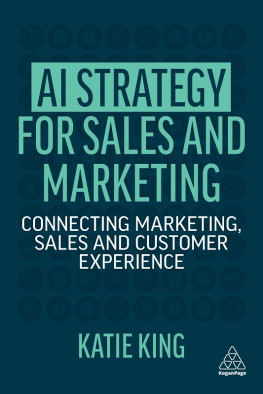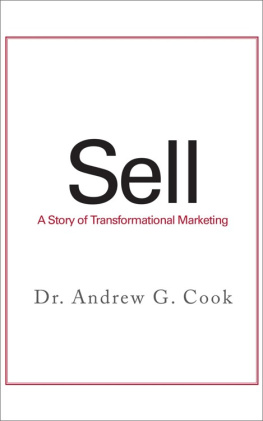
Cover design: Michael J. Freeland
Copyright 2016 by John Wiley & Sons. All rights reserved.
Published by John Wiley & Sons, Inc., Hoboken, New Jersey.
Published simultaneously in Canada.
No part of this publication may be reproduced, stored in a retrieval system, or transmitted in any form or by any means, electronic, mechanical, photocopying, recording, scanning, or otherwise, except as permitted under Section 107 or 108 of the 1976 United States Copyright Act, without either the prior written permission of the Publisher, or authorization through payment of the appropriate per-copy fee to the Copyright Clearance Center, 222 Rosewood Drive, Danvers, MA 01923, (978) 750-8400, fax (978) 646-8600, or on the web at www.copyright.com. Requests to the Publisher for permission should be addressed to the Permissions Department, John Wiley & Sons, Inc., 111 River Street, Hoboken, NJ 07030,(201) 748-6011, fax (201) 748-6008, or online at www.wiley.com/go/permissions.
Limit of Liability/Disclaimer of Warranty: While the publisher and author have used their best efforts in preparing this book, they make no representations or warranties with the respect to the accuracy or completeness of the contents of this book and specifically disclaim any implied warranties of merchantability or fitness for a particular purpose. No warranty may be created or extended by sales representatives or written sales materials. The advice and strategies contained herein may not be suitable for your situation. You should consult with a professional whereappropriate. Neither the publisher nor the author shall be liable for damages arising herefrom.
For general information about our other products and services, please contact our Customer Care Department within the United States at (800) 762-2974, outside the United States at (317) 572-3993 or fax (317) 572-4002.
Wiley publishes in a variety of print and electronic formats and by print-on-demand. Some material included with standard print versions of this book may not be included in e-books or in print-on-demand. If this book refers to media such as a CD or DVD that is not included inthe version you purchased, you may download this material at http://booksupport.wiley.com. For more information about Wiley products, visit www.wiley.com.
Library of Congress Cataloging-in-Publication Data:.
Names: Eiler, Tracy, author. | Austin, Andrea, author.
Title: Aligned to achieve : how to unite your sales and marketing teams intoa single force for growth / Tracy Eiler, Andrea Austin.
Description: Hoboken : Wiley, 2016. | Includes index.
Identifiers: LCCN 2016031021 (print) | LCCN 2016035377 (ebook) | ISBN9781119291756 (hardback) | ISBN 9781119291794 (pdf) | ISBN 9781119291770 (epub)
Subjects: LCSH: Marketing. | Selling. | BISAC: BUSINESS & ECONOMICS /Marketing / General.
Classification: LCC HF5415 .E445 2016 (print) | LCC HF5415 (ebook) | DDC 658.3/044dc23
LC record available at https://lccn.loc.gov/2016031021
Dedication
To my parents, Bob and Jean, who nurtured my passion for living and learning.
Andrea
In honor of my mom, Sandy Eiler, who taught me how to be someone who makes things happen.
Tracy
Foreword
Alignment should be the number-one operational issue for every business-to-business company. The era of fostering tension between sales and marketing is over. Businesses achieve more success and operate at a higher levelmeaning more growth, more profits, and more productivitywhen the teams interacting with the customer are tightly aligned. That extends from alignment on defining who the customer is, to what the customer sees and hears, to how that customer is approached, engaged with, and ultimately won.
We are in the midst of a long and unprecedented period of rapid, technology-fueled business transformation. Markets have become more competitive, products more commoditized, new business channels and methods are appearing, and technology has become ubiquitous and affordable by even the smallest companies. What that means is any company of any size can effectively compete against rivals and everyone has a harder time standing out from the growing noise in every market. Even more, buyers and buying cycles have transformed because buyers have more power and more information, which enables them to be independent of, disconnected from, and less reliant on you as a seller.
All of this has led us to today, where B2B businesses are fundamentally challenged in their go-to-market efforts. Noise in the market has skyrocketed, confusion abounds, differentiation is elusive, and buyer attention is a limited resource.
So what's a company to do?
Leaders must align their teams to focus on company growth, not departmental success. Gone are the days when sales could focus only on closing deals, marketing could focus only on generating leads, and every other department could look at their own achievements. When teams are aligned and aimed at common goals, they work better together and they win more often. But alignment is not just necessary for growth, it is necessary for survival because buyers are no longer responding to traditional and disjointed outreaches. Instead, companies must coordinate across all touchpoints where buyers are engaged, regardless of who initiates that contact or how. Buyers do not see sales and marketing; they see your brand and your company, your website and your booth at a show. Alignment enables a thoughtful, coordinated engagement with customers, and they will respond favorably.
Alignment is required, but it is not enough. It needs to be guided by a go-to-market strategy. I am starting to see a clear trend among leading companies of adopting a modern and tech-centric approach to market targeting. These companiesbrands you would recognize as the most forward-thinking and innovative companies in their segmentsshy away from the traditional volume approaches of outbound calls and emails. Instead they aim for quality and pinpoint targeting with the right outreach to the right person at the right time. They have learned that the old model of spray-and-pray is no longer working, so they have adopted a more focused and strategic approach.
These companies have teams that are aligned and focused, a strategic go-to-market plan, and the technologies and processes in place to execute it. As a result, they are outperforming their competitors and pulling way ahead of the others in the market. They have turned their strategy, processes, technologies, and teams into a defensible, competitive advantage for their company. It is a great time to be marketing and sales leaders, and to have the opportunity to shape the future of our companies and their revenue engines. It is also a great time to be a CEO. What is possible today wasn't even imaginable just a few years ago.
To be aligned requires leadership, and leadership begins with the CEO. It does not stop until you reach everyone in your organization. Regardless of where you fit in your company and whom you lead (even if it is just yourself), this book gives you a set of recipes that will help you break down walls, align your organization, and ensure it is ready for the challenges of going to market in this ever-evolving, complex, and challenging time. No one team can do it alone.
Umberto Milletti
Founder and CEO, InsideView
Aligned to Achieve
Chapter 1
Why Align?
What are the topics of conversation around your office? That most likely depends on whom you talk to.
From sales reps, you probably hear complaints about low-quality leads or those that take too much nurturing to move through the sales funnel. They likely also complain that the marketing department's content does not work or is not granular enough for the specific targets, situations, or markets the sales team encounters. For example, maybe your sales reps come back from an event griping that a competitor's booth was larger, had more of a crowd, or looked better. Maybe they argue that the organization's marketing message isn't differentiated or compelling enough for them to turn opportunities into action, or that marketing is simply out of touch with the customer's needs. Your sales reps might even wonder out loud why the organization is focused on one market instead of targeting the obvious opportunity in another market.
Next page









